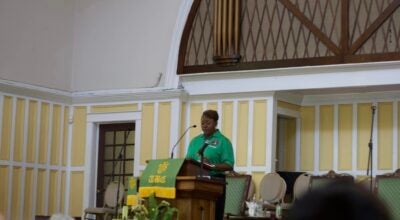Discussions of reopening the Phoenix School begin
Published 7:25 pm Wednesday, November 7, 2012
Selma City School Board members discussed and debated the idea of moving forward on the system’s alternative school program being relocated to the Phoenix School during Tuesday’s work session.
Currently the program is housed in the walls of Selma High School, but used to be located in a separate facility at the Phoenix School before it was closed, due to financial shortcomings three years ago. At the meeting, board member Brenda Randolph-Obomanu raised the question as to what the board plans to do next with the Phoenix School.
“You requested some information, and now that you have received your information, I want to know can we proceed,” Obomanu asked school board president Henry Hicks. “Half of the school year is almost over and we still do not have our alternative program like it should be.”
Obomanu’s main concern is the time it is taking to put the school together while Hicks stated he wants to take time to, “get it right this time.”
“We are not going to rush into this and when we get this program put together it is going to be something that we can be proud of. We are going to know that our children are not going to be just stuck in a holding pin,” Hicks said. “Our goal should be to not have to have an alternative school, but if we have got to have one, then we need to make sure that these kids are getting what they need.”
In response Obomanu explained that a “holding pin” situation is exactly what is in place now. The children who are currently in the alternative program, more than 20 children now, are in a classroom within Selma High School and are looked after by an administrator, according to Obomanu.
So far in the alternative school progress the board members have attended a walk-through in the Phoenix School to survey the state of the property and superintendent Gerald Shirley has been given a layout of the expenses for re-opening the Phoenix School facility as well as a proposed plan on how to pay for personnel that would be on a part-time basis.
District Judge Bob Armstrong, who oversees many of the juvenile programs in the city, was involved with the discussion of the new alternative school.
“[What] I’m proposing is that we do something and we don’t even call it an alternative school. It would be a school that would really be excellent and they would have all types of services such as substance abuse counseling, modification program on school and on-site and credit recovery to help kids catch up,” Armstrong said about combining the forces and resources of the school system with the juvenile court for the alternative school.
Armstrong said he is an advocate of using the Phoenix School facility, but said he is only an advocate of the school if it offers more to students than just, “a dumping ground for problem kids and then basically just maintaining them in their present situation. But I am strongly in favor of us working any way we could to help these kids,” he said.





